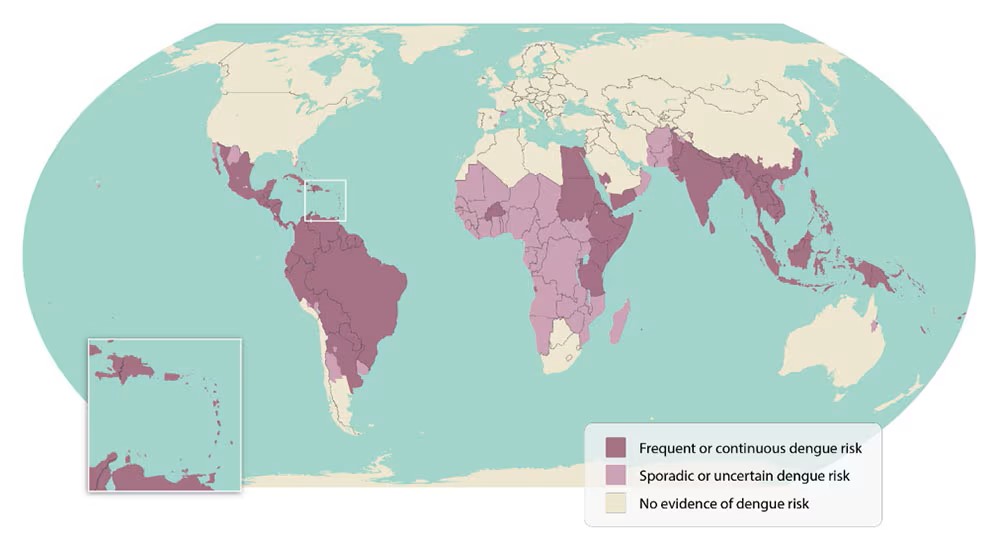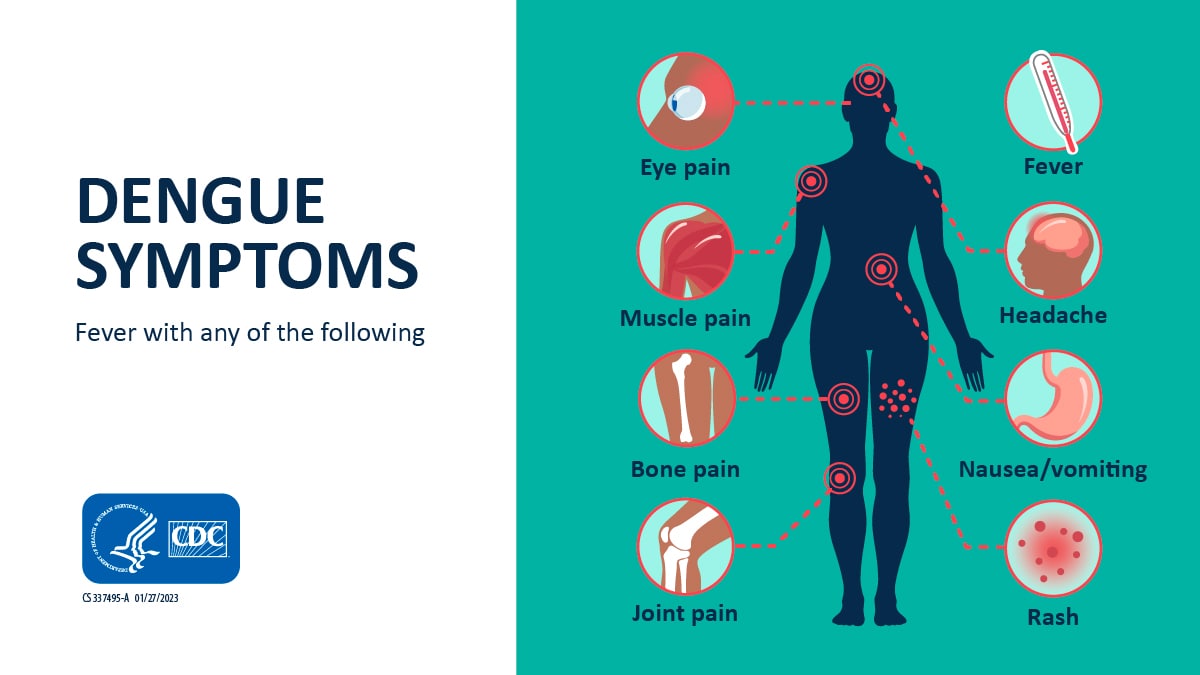Dengue is an arthropod-borne viral disease (arboviral disease) caused by one of any four related viruses: DENV 1, DENV 2, DENV 3, and DENV 4. Dengue viruses are commonly transmitted to people by the bite of an infected Aedes species mosquito which can be found worldwide in tropical and subtropical regions. Dengue viruses are not found in Indiana mosquitoes. Indiana reports cases of dengue every year in travelers returning from areas with risk of dengue.
 CDC- World map highlighting areas of dengue risk
CDC- World map highlighting areas of dengue risk
In 2024, over 12 million cases of dengue were reported in North, Central, and South America and the Caribbean. Outbreaks in areas where dengue is common has resulted in increased dengue cases in returning travelers from those areas. Limited local transmission in the United States. For more information on the current outbreak, visit the Centers for Disease Control and Prevention's (CDC) website.
Traveling soon? Visit our travel page for more information on what to do before your trip.
Page last reviewed/updated: March 2025

